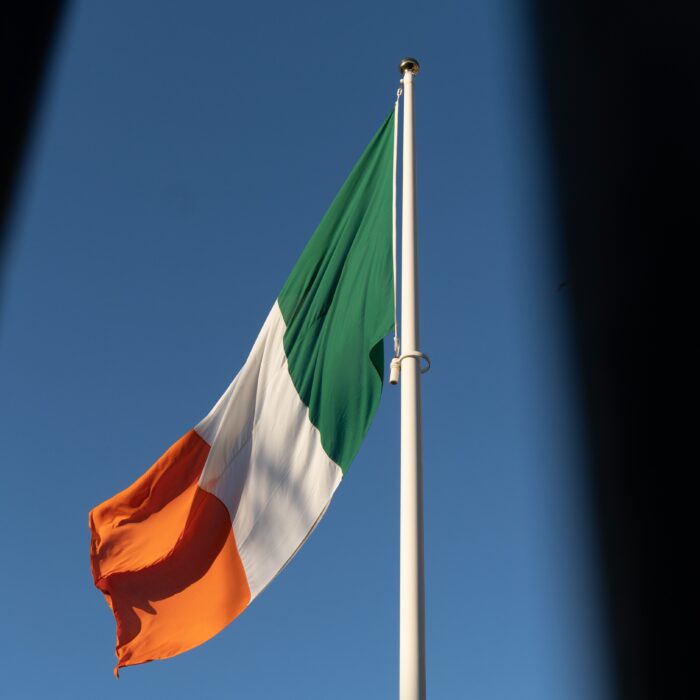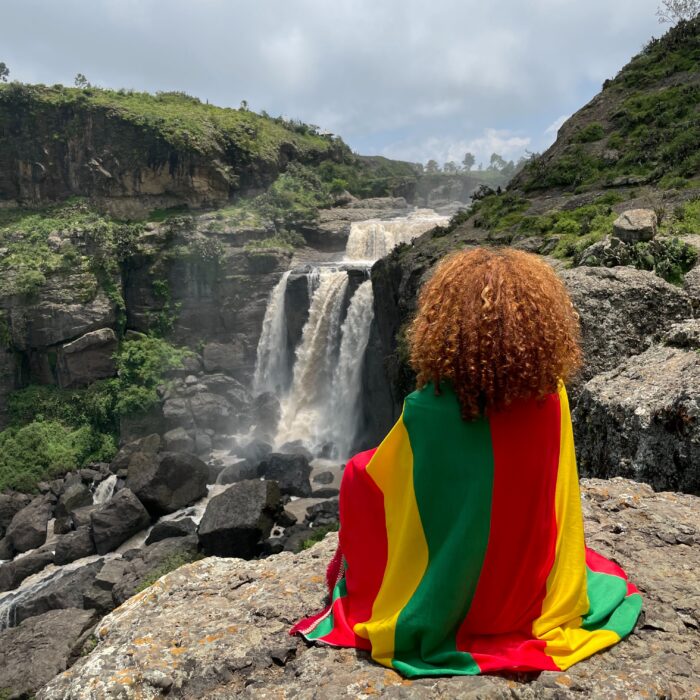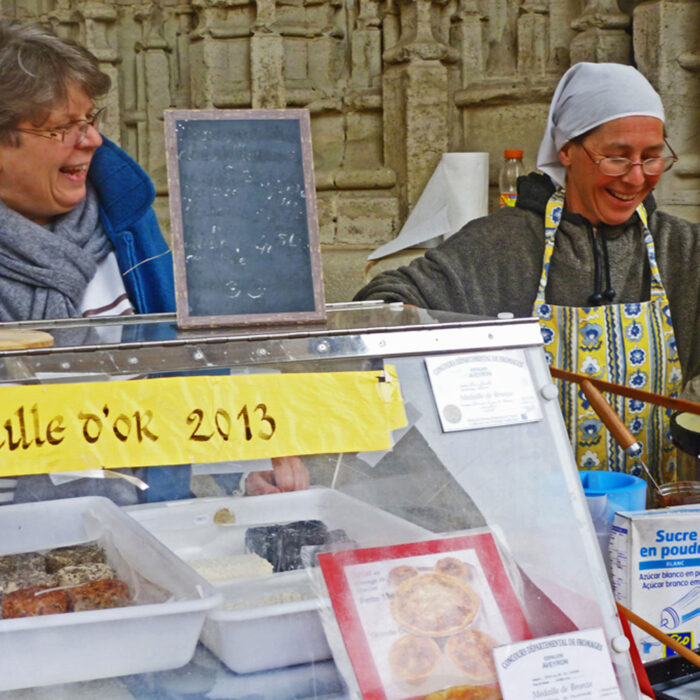You have no items in your cart. Want to get some nice things?
Go shopping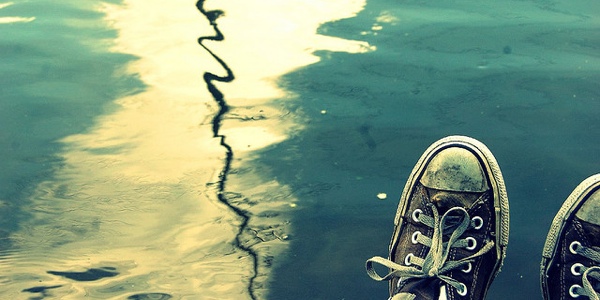
In 1969 we spent a Saturday, all day, at our cousins in Sacramento. They took us to a short dirt road that led to a small sandy beach along the American river. My father was never without his transistor radio and he had brought it along on this trip in hopes of getting news about the moon landing.
I had on my very first swimsuit with a built-in bra — which I barely needed. I was self-conscious about the whole take-your-clothes-off-get-into-the-river-in-your-new- suit. I was fairly confident that the built-in bra cups would collapse under the slightest pressure, so the last thing I wanted was to be parading around in my new suit, which, except for the chest area felt much too small everywhere else, especially in the seat area. When my mother bought it for me I thought it looked all right enough in the dressing room mirror: brown seersucker-type material with substantial straps and white piping for a trim with three white buttons strategically placed between the bra cups, which made it look a little like a modified business suit. Just what a 13 year old girl wants to be seen in, wet.
So, I stood with my back to a pine tree for longer than was necessary or even prudent. My mother had set up an old blue blanket on the sand and parked her herself in the middle of it, her purse on one side, the new Polaroid camera on the other. At this stage of my life, in this setting, the next worse thing to having to wear this swimsuit would be having a picture taken of me, with this face, on this day, in this swimsuit.
I started dreaming up ways of stealing the camera and destroying it completely. I had brought my Brownie Instamatic, but that was a whole other thing: you pointed the Brownie, you looked through the viewfinder, you clicked the red button on top, the film inside automatically advanced to the next picture. What was most important here was that you then would take the camera home, unload the film, take it to the corner pharmacy for developing and pick it up, if you were lucky, a week later, two weeks depending on your mother’s memory and assuming you hadn’t lost the perforated slip of paper the druggist tore off the top of the development envelope.
But my parents had a Polaroid instant camera, the new kind with a color pack. Not everyone had one of these. But my father worked at Lockheed and in 1969 he was a gadget guy. He brought home what he told us was one of the first pocket calculators, though we were unclear about why the word pocket was used. The thing weighed like 10 pounds. Same deal with the transistor radio. No matter where we drove my father always pulled out the transistor radio to see what kind of reception he got. Turns out on the American river, on a Saturday afternoon in 1969 with only a few cumulus clouds in the sky (which he had pointed out to us), he was able to tune in the news of the moon landing.
He’d been telling us for weeks and weeks that history would be made this weekend. With these types of pronouncements I took my mother’s attitude. That’s nice dear, but it’s also the weekend we’ll be up at Shirley and Dick’s. That shut my father up pretty quickly. But you better believe he had the car radio on the whole trip up, three hours.
Mother sat on the blanket, I stood against the tree and all the cousins ran screaming out into the river, splashing and dunking each other into the shallow, murky, slow moving water. Father had planted himself down river within earshot, but off the blanket. He kept fiddling with the radio and sometimes he’d hit some rock ‘n roll station and we’d hear a bar or two of Ain’t No Mountain High Enough, or if we were lucky, Satisfaction. Once he realized it wasn’t a news station though, he’d spin the dial and we’d hear static then voices then static then the loud happy sounds of a Spanish radio announcer and maybe one ump-pah-pah of a dance tune. When he finally landed on news of the landing, we knew it because he put the radio up to his ear and bent his head. It was like he wasn’t really at the river at all.
This was fine with me. At least he wasn’t yelling at me to get in the water and go play with my cousins, all of them male, and all of them somewhere in the eight to 12 year old age range and so clearly beyond my ability to relate.
I’d been watching my mother rearrange picnic items on the blanket forgetting about where my father was, when he appeared next to me, grabbed my arm and dragged me toward the water.
I could see it all happening as if in slow motion: my mother twisted around, saw us, saw me in my new suit, made a big OH with her mouth and reached for the Polaroid. I watched it all unfold as if I was still backed up against the tree. The hand-off was made as slickly as a pass during a Harlem Globetrotters game. Father had slipped the transistor radio into his shirt pocket and now had the camera in one hand, my arm in the other. I could hear the broadcaster talking about the astronauts and Houston and the conversation about what the astronauts might say or do once they landed.
My father took my arm and turned me around to face my mother, the cousins and everyone else spending the afternoon on the river. The sun had chosen that moment to break through. I could barely open my eyes against the glare. He took a step away from me and raised the Polaroid. I closed my eyes against what I knew was coming, the dreaded click and swoosh of the negative as it was spit out of the camera. He pulled it out and handed it to me, took the radio out of his pocket and flipped the volume up to high.
“One small step for man….” I held the negative at arm’s length, waiting for the image to come up. The green muck turned to red, to yellow, to my face and my suit, my new suit.
“This is history,” my father said, pointing the radio first at me and then to my mother as if he was trying to show it to us.
I dropped the picture to my side and let it hang there, moving it slowly out of sight, out of my sight, out of anyone’s sight. I didn’t want to see, I didn’t want them to see. I was absolutely certain this was the worst day of my life, like in my entire history on the planet. And I knew the date would be seared into my brain forever and ever; July 20th, 1969. And I knew when we got home, whatever it took, I would take that Polaroid camera and bury it somewhere deep and dark where nobody could ever find it again and then I’d stick that brown swimsuit with its white piping and three white buttons in with it and cover it all over with dirt and mud and gravel and swear to any god you wanted to name that I would never, ever wear a swim suit again.
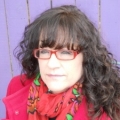
About Cheryl Diane Kidder
Cheryl Diane Kidder has a B.A. in Creative Writing from San Francisco State University. Her work, nominated twice for the Pushcart Prize, has appeared or is forthcoming in: CutThroat Magazine, Weber--The Contemporary West, Pembroke Magazine, Tinge Magazine, Brevity Magazine, Brain,Child, Identity Theory, In Posse Review, and elsewhere. For a full listing see: Truewest - https://cheryldkidder.blogspot.com.

